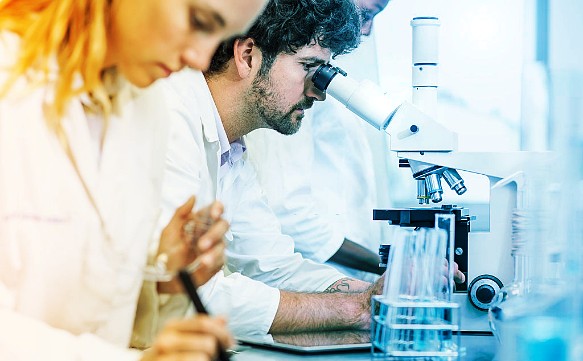

Cancer is a health problem whose importance continues to increase in the 21st century. All of the organs in our body are made up of cells. The cancer doers not begin in the organs, but at the cell stage. Healthy cells are able to divide. They use this ability in order to replace dead cells and fix wounded tissue. However, this is limited, and they are not able to divide infinitely. A healthy cell divides where required, and as many times as required. And when they grow old, they die and are replaced by new ones. Sometimes this cycle is interrupted. An excessive number of cells are created outside the control of the body, or old cells do not die when they are supposed to. The tissue mass which is created as a result of the uncontrolled growth of cells is called a tumour.
The abnormal process of growth of the cells develops step by step. Each genetic change transports the cell in the abnormal process of growth a little bit further forward. As not all of the genetic characteristics of the cells are exactly the same, it is almost impossible to guess when these genetic changes will take place. Therefore, while some types of cancer spread quite slowly, some can spread extremely fast and damage the health of a person within just a few months.
Scientific studies show that factors such as those below increase the risk of cancer developing in a person:
What are the leading symptoms and indicators of cancer?
The indicators and symptoms of cancer varies according to the tissues and organs it takes root in. In fact sometimes, a cancer diagnosis can be given during examinations without any clear indication or symptoms.
However, some of the indicators which need to be watched for are as follows:
First of all one should not be frightened of cancer. Being frightened prevents us going to the doctor and delays diagnosis. Cancer is a curable illness and the curability ratio is correlated positively with how early the diagnosis was made. Almost two thirds of all cancers can be potentially prevented, and with early diagnosis, the curability rate, which is currently 50%, can be increased to 95%. We need to be aware of the indications of cancer, and go to the doctor when any of these indications are experienced.
The psychological trauma experienced by a patient who has been diagnosed with cancer, is correlated positively with how the cancer risk is perceived and the ability to deal with it in situations where there is a danger to life.
Therefore, it is very important to minimise the incorrect knowledge held about cancer and the negative thoughts which will prevent a treatment from being successful, to improve the quality of life of the patients, to contribute towards a better psychology of the patient, and to support their families and loved ones.
Compared to Europe and other countries, Turkey also offers lower cost cancer treatments at world standards.